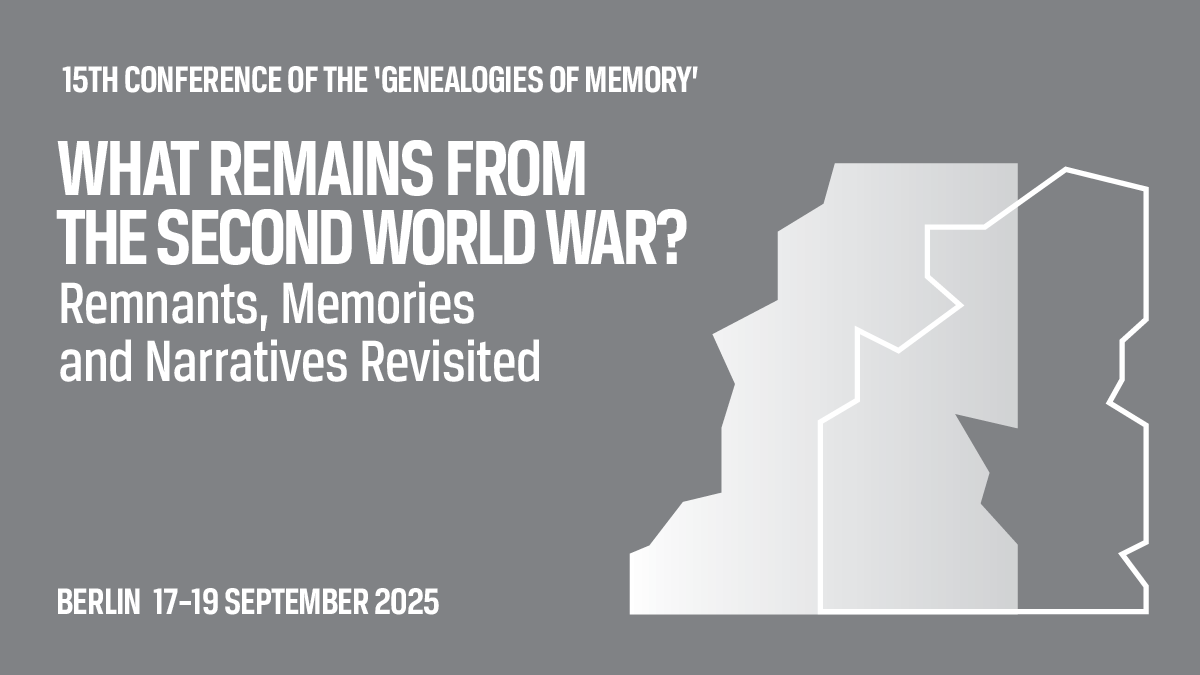What Remains from the Second World War? Remnants, Memories and Narratives Revisited
17–19 September 2025, Berlin
The Second World War may have ended decades ago, but its traces remain deeply embedded in the fabric of contemporary Europe. From physical ruins scattered across landscapes to scars carried on human bodies and within collective memory, the war continues to shape the present. As we approach the era when the last living witnesses pass away, we must ask: What remains of the war, and how does it persist in shaping historical consciousness?
The 15th edition of the ‘Genealogies of Memory’ conference will explore the material, cultural, and memorial afterlives of the Second World War. We aim to investigate how the war endures through its physical remnants, symbolic representations, and evolving narratives. Scholars from various disciplines will gather to discuss how these traces mediate the past, influence cultural memory, and resonate amid today’s socio-political challenges.
The conference will address three core themes:
▪️ Materiality of Memory: How does the past endure through physical remnants? This theme will examine the tangible presence of history in war ruins, monuments, and artefacts, alongside theoretical perspectives on how memory becomes embedded in material culture.
▪️ Revisiting Post-War Memory Cultures: Memory is dynamic, evolving in response to contemporary geopolitical changes and societal shifts. We will explore how Russia's ongoing war against Ukraine, among other events, reshapes narratives of World War II, as well as the impact of digital technologies and unregulated social media on commemorative practices.
▪️ Case Studies of Memory Practices: Through specific examples of WWII’s material and symbolic legacies, we will investigate how trauma, narratives, and cultural practices are transmitted across generations. Presentations will address contested memories, linguistic ruptures, and the enduring influence of the war on culture and identity.
The conference is open to scholars from fields such as history, sociology, anthropology, cultural studies, psychology, linguistics, literature, art history, political science, and law. Comparative and interdisciplinary perspectives are particularly encouraged.
Practical Information:
To apply, please submit the following documents to: genealogies@enrs.eu by 11 May 2025:
▪️ Abstract (max. 300 words)
▪️ Brief biographical note (up to 200 words)
▪️ Signed Consent Clause (photo/scan)
Applicants will be notified of the selection results in early June 2025. Draft papers (2,000–2,500 words) are due by 25 August 2025.
The conference language is English. Accommodation for participants will be provided by the organisers. No conference fee is required.
